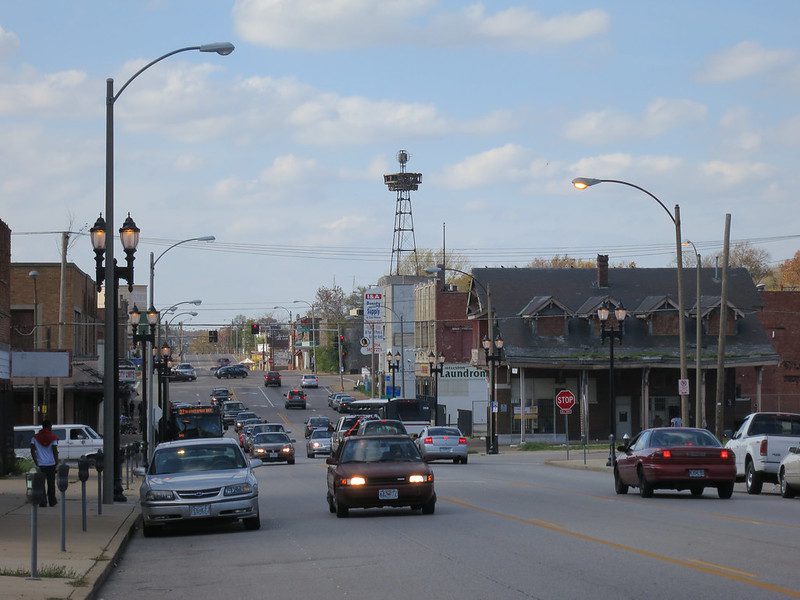
Image by Sky Eckstrom, via flickr, CC BY-SA 2.0
Eric’s family purchased a Habitat for Humanity home in the Florida farming community of Immokalee, Florida, which among many other things, provided stability and quiet. Eric recently earned a full scholarship to Cornell University, where he wants to study business and hotel management and bring his skills back to his hometown. He’s one of a group of Immokalee students who started Taste of Immokalee, a business that highlights their community’s commodities and produces sauces, salsas, and spice products that are now appearing on the shelves of local Publix stores. “Eric is a great example of what an impact housing makes in the life of a child,” said Lisa Lefkow, executive director of Habitat for Humanity of Collier County.
“A safe, decent, affordable home is like a vaccine,” said Dr. Megan Sandel of the Boston University School of Medicine. “It literally prevents disease. A safe home can prevent mental health and developmental problems, a decent home may prevent asthma or lead poisoning, and an affordable home can prevent stunted growth and unnecessary hospitalizations.” Similarly, studies indicate that stable housing leads to better education outcomes.
Folks, we need to drag housing back to the forefront of the national conversation because the benefits of stable housing are undeniable.
Stable housing—particularly homeownership—results in improved income-earning opportunities and wealth creation as well. A 2016 report by the Joint Center for Housing Studies said that for most households, homeownership was associated with significant gains in household wealth, even when viewed across the tumultuous housing crisis period of 1999 to 2013. On a broader scale, we know that housing is a focal point for sustainable social and economic development.
Yet knowing all of this, the underlying systems that led to the 2008 housing collapse remain unchanged, with 81 percent of Americans feeling that housing affordability is a problem, and nearly two-thirds believing the country is still in the midst of a housing crisis.
With a new administration and Congress starting to take action, opportunities for improving housing conditions in the U.S. are available—and the timing couldn’t be more crucial. While increased demand in the rental market is helping to drive recovery from the Great Recession, the number of cost-burdened renters is at an historic high, as 11.4 million people struggle to afford a decent place to live. Meanwhile, the ability of Americans to access credit and afford homeownership is at an all-time low—the lowest in half a century.
It is crucial that the government maintain federal housing investments and maximize their impact. Tax reform represents an early opportunity for Congress to protect and support housing and nonprofit housing organizations, but reform also entails significant risks. Congress must carefully consider and mitigate the risks of reform for nonprofit organizations and for housing.
There is also danger on the spending side of the federal budget equation. Both the president and Congressional budget hawks are expected to push for substantial reductions in domestic discretionary spending in the coming months. With federal housing assistance currently reaching less than a quarter of qualified households, resources such as the HOME Investment Partnerships Program, the Community Development Block Grant, and the Self-Help Homeownership Opportunity Program have never been more important.
Regulatory reform, another top priority of the new administration, should focus on aligning regulations across federal programs and otherwise reducing regulatory costs, enabling more available funding to reach those in need and facilitating program effectiveness.
And finally, housing finance reform must be reconsidered. The failure of Congress to reform the system after the financial crisis has severely limited access to mortgage funding for creditworthy households and is an ongoing risk to the taxpayer in the event of another serious crisis.
We must use our voices and our partnerships to advocate for a healthy housing market that supports people of all income levels and all housing preferences. If children don’t live in decent homes, the reality is that their odds of staying healthy plummet. If they’re not healthy, they don’t receive an adequate education; and if they don’t get an education, they cannot get decent jobs, meaning they may not be able to care for their families or break out of the stranglehold of poverty. All of these pieces have to line up if we are going to build and maintain healthy and thriving communities, and it starts with the home. It starts with us.






Jonathan is on target — safe, stable, affordable, decent housing and a healthy family — are the foundation upon which a society may be built. These must be elevated to public discourse and the focus of public and private policies. If we as Americans fail at this, we do so at the peril of our entire society.
As I hear the reports (i.e. Point in Time Counts) that homelessness is declining; and, at the same time witness massive numbers of people subsisting in low budget, high cost hotels and motels; and, see individuals and families living in cars and tents; I wonder if, much like the financial debacle that fostered the Great Recession, that we are simply masking an issue (homelessness and near homelessness) that will become un-masked to show the true issues that need to be addressed in our society.